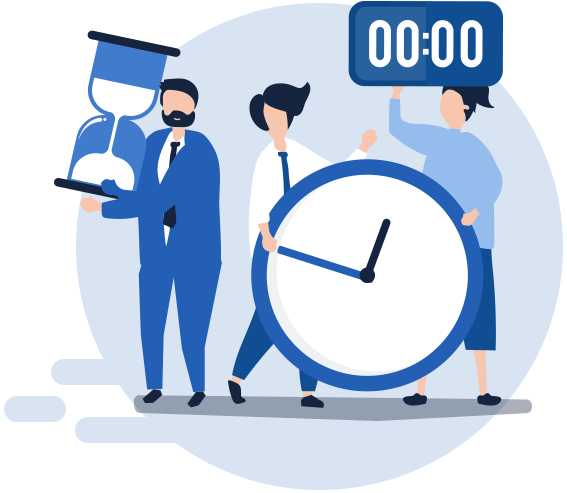

Understanding Epilepsy
Epilepsy is a chronic disorder, a condition in which a person experiences recurrent and unprovoked seizures. A disturbance in the electrical activity in the brain causes a seizure. The brain cells stop the other brain cells from sending messages. When a seizure occurs, it causes an imbalance and stops an activity. It results in a temporary disturbance of motor, sensory or mental function. Seizures can also be a symptom of any other disorder that affects the brain. Epilepsy and seizures can develop at any age, in young and old.
There are types of seizures, depending on which part of the brain is involved.
If all the areas of the brain are affected then it may result in a generalised seizure, consciousness lost or impaired; one seizure may evolve into another.
Seizures do not have a clear cause, but many of it involve some injury to the brain.
Avoid triggers to avoid seizures and live better:
· Missing medication dosages
· Lack of sleep
· Psychological stress
· Heavy alcohol use
· Nutritional deficiencies
· Specific activities
Seizures are emergencies. The first seizure is a reason to visit the doctor or the emergency department. If diagnosed with a seizure disorder or a change in the seizure pattern, one must visit the doctor.
No Escape to the Ache- Headache
Headache may appear as a sharp pain in any region of the head. It is the most common medical complaint experienced by many at some point.
According to the World Health Organisation (WHO) reports almost half of the adults will experience a headache in every given year. It can affect anyone regardless of gender, age and race. Stress, emotional distress or medical disorder or medical disorder like migraine or high blood pressure l, anxiety or depression can result in headache.
It can occur in any part of the head, one side or both sides. As per the International Headache Society (HIS), headache can be categorised into:
Primary Headache is a stand-alone illness that can cause by over activity or problems in blood vessels, muscles and nerves of the head and neck. Migraines and cluster headaches can fall into common primary headaches.
Secondary Headache occurs when another condition stimulates the pain-sensitive nerves like an alcohol-induced hangover, tumours, blood clots, brain freeze, dehydration, panic attacks and stroke.
Headache can be a symptom of a serious condition, and it is important to seek medical advice if severe, regular and persistent.
Healthy Nerves to Live Healthy
Neuropathy is a condition that affects the normal activity of the nerves. Neuropathy is also called peripheral neuropathy. The peripheral nervous system is a network of nerves that connects the brain and spinal cord to the rest of the body.
Neuropathy can affect a single nerve or a set of nerves. Every nerve in the peripheral system has a function, it is classified into:
The symptoms depend on which nerve gets affected. The signs include-
A number of conditions can cause nerve damage. Health conditions like the following can cause peripheral neuropathy
The other causes include-
Managing medical conditions like diabetes, alcoholism or arthritis can prevent peripheral neuropathy. The healthy habits like a rich diet and regular exercise can improve nerve health.
The Network of Neurons
Neurology is the branch that deals with the disorders of the nervous system. The system includes the brain, blood vessels, nerves and muscles. It is a sophisticated and complex system; regulates and coordinates body activities. The nervous system is majorly divided into two divisions.
1. Central Nervous System (the brain and spinal cord)
2. Peripheral Nervous System ( eyes, ears, skin and other sensory receptors).
A neurologist works in the field that treats neurological disorders via surgery. These disorders are wide-ranging diseases of the brain, spine and nerves. Many of these disorders may emerge at birth or during the early years of development.
Congenital: present at birth
Acquired: developed after birth
Idiopathic: cause unknown
The Pre/Perinatal Causes:
1. Environmental factors
2. Nutritional deficiencies
3. Infections
4. Complications during birth
5. Prematurity
The Acquired Causes:
1. Immune Disorders
2. Postnatal Infections
3. Brain Injury
4. Spinal Cord Injury
5. Neoplasm (abnormal mass of tissue producing tumour)
Be FAST
Spot a Stroke
A stroke, a cerebrovascular accident occurs when a part of the brain loses its blood supply and the part of the body that the blood-deprived brain cells control stop working.
It is a medical emergency as it can lead to death or permanent disability. A 'brain attack' can occur to anyone at any given time. Stroke can occur in two main ways:
1. Blood flow blocked
2. Something causes bleeding in the brain
Ischemic Stroke: In most cases of stroke, a blood vessel that takes blood to the brain gets plugged.
Hemorrhagic Stroke: It's a less common form of stroke but more serious. Uncontrolled high blood pressure and too much blood thinner medicine can lead to this kind of stroke.
Symptoms of stroke
One must use the FAST TEST to check for the most common symptoms of a stroke.
A stroke may also occur gradually but it does give one or more sudden symptoms-
Stroke is a medical emergency that must be diagnosed and treated right away.